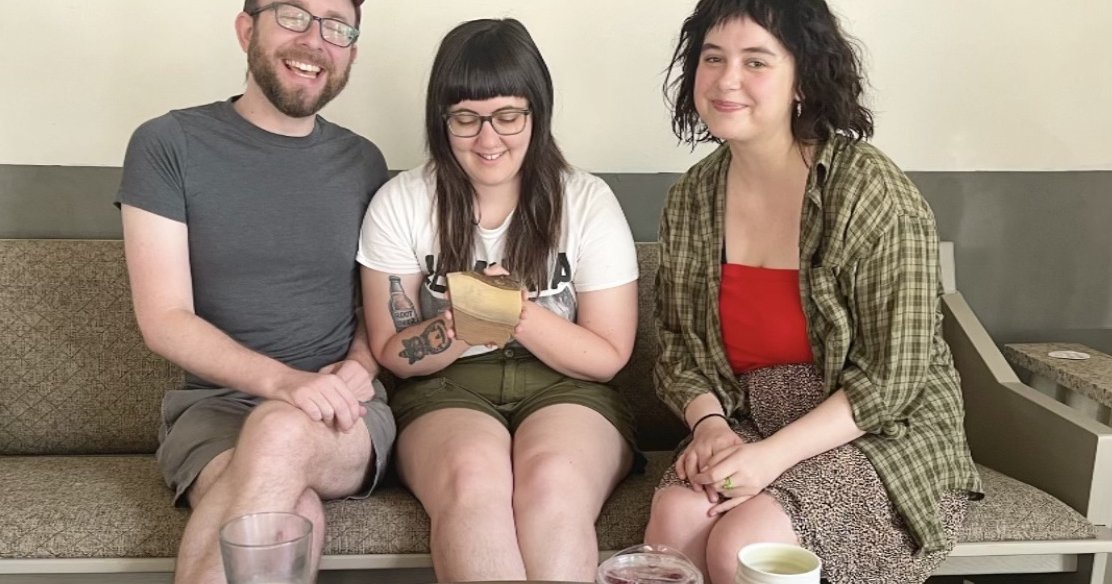As someone who’s neurodivergent, Amy Rannabargar says it can be hard to make friends with people who don’t have similar disabilities. She sometimes struggles with miscommunication, especially when others don’t understand what’s going on with her emotions.
“I’ll have meltdowns or I’ll get sensory overload and maybe to someone who’s neurotypical it’s like, ‘OK, she’s being really weird, calm down, Amy,'” said Rannabargar, 36.
MORE: The way you breathe is unique and can identify you — like your fingerprints
Neurodivergence is a generalized term that includes anything that causes a brain to function differently, such as autism, attention-deficit/hyperactivity disorder and post-traumatic stress disorder. Approximately 17% of Philadelphia residents have a disability, according to data from the city, and they can often make people easily overwhelmed or overstimulated and prone to high levels of anxiety or stress, which can make socializing difficult.
Rannabargar is one of a number of adults who gather the second Sunday of every month at American Grammar, a coffee shop in Norris Square, for the Philly Neurodivergent Meetup. From noon-2 p.m., attendees sit in a circle and share what’s going on in their lives, from dating chronicles to recommendations for a cheap night out to their thoughts on Disney remake movies. People are asked to introduce themselves and wear name tags, but no one is required to disclose their diagnosis unless they want to.
Shelby Guercio, 29, founded the group in March 2024 because she was searching for an in-person community after so many groups and events moved online during the COVID-19 pandemic. She was hoping to find a space where neurodivergent adults could meet, but while she found support groups, she couldn’t find anything designed for adults to make friends.
About 10 to 15 people participate each month, and the structure of each meeting changes depending on who’s there. Sometimes, Guercio will come up with a topic to kick things off, like the Super Bowl for the February meeting or what role participants think music plays in their lives. Other times, someone else will bring something they’d like the group to converse about that day or chatter will flow more organically.
Guercio has a totem item that gets passed around if a lot of people want to speak at once, but she really wanted everyone to participate on their own terms. Since shyness and excessive talking are both common in neurodivergent people, everyone is invited to speak as much or as little as they’d like. And while people are free to share their struggles, the meeting isn’t designed as a support group, so there are no limits on what can be discussed.
“It’s providing a space where people can come and talk about how they are facing the world as a person who is neurodivergent,” Guercio said. “There’s a lot of stuff going on politically with health care, and there are a lot of discussions going on in the larger society about stigma and acceptance and ability and things like that, and I think that it’s an opportunity for people to be in a space without it being clinical.”
In March, the group collaborated with Free Dating Advice Philly, and Guercio also would like to do an event with Pitch-A-Friend Philly, where people give a slideshow presentation on why others should date their friend. She’s also considering hosting a speed-friending event, a platonic version of speed dating.
While the group is a resource for people who struggle to make friends, others said they’ve been successful socially and it’s more about finding like-minded people. Josh, 39, who asked to leave out his last name for privacy, joined the group on the recommendation of a friend. As an avid dancer and language-learner, he has a number of social hobbies that have led to making new friends. But he still wanted to connect with other neurodivergent people that better understood his life and needs.
“It’s difficult to meet other neurodivergent people sometimes and (find) people who have a similar experience to you on a day-to-day basis,” he said. “It helps fill in those gaps, being in this group.”
Britt Rizzo, 29, also said she hasn’t really struggled to make friends, but she wanted to change who she was surrounding herself with. Being in a neurodivergent group, she said, she’s not worried about being misunderstood or ostracized.
“I was being very intentional this year with the people I wanted to welcome into my community,” Rizzo said. “[The group] takes so much pressure off, there’s almost an expectation that those things might come up. So, when you’re meeting people who are in the space, it feels easier to make friends.”
For Guercio, the in-person aspect of the group also leads to hyperlocal discussions that can’t always happen online, where connections are often made with people from other states or countries. At the meetup, participants get to talk about what it’s like to be neurodivergent in Philadelphia and share local resources that others can use — at one meeting, the group was sharing recommendations for sensory-friendly parades in the area — all in a comfortable environment.
“That expectation of a neurotypical exchange is gone,” Guercio said. “No one’s coming in and completely 100% unmasking themselves because a lot of times it is strangers or people you don’t know that well, but it’s just the idea that you can participate without feeling so immediately judged about how you present yourself in a social setting.”
This story originally incorrect reported that Britt Rizzo experienced meltdowns as a neurodivergent person. It has been updated to remove that statement.
(Except for the headline, this story has not been edited by PostX News and is published from a syndicated feed.)

